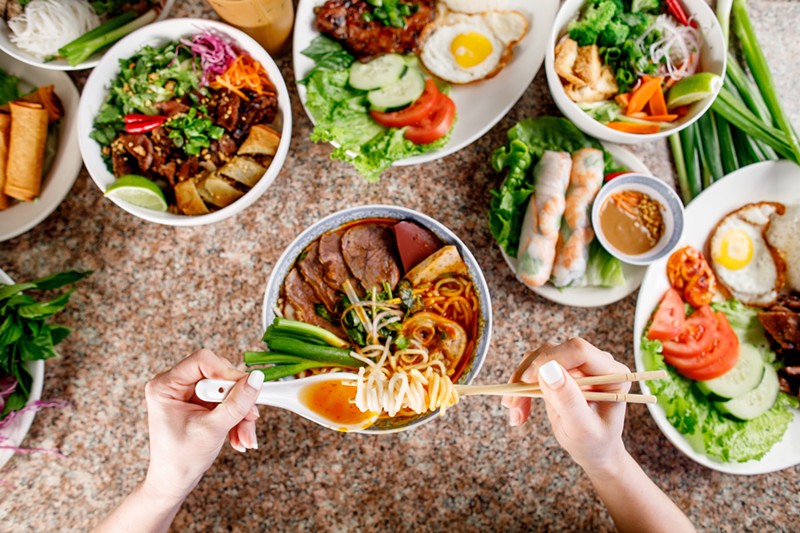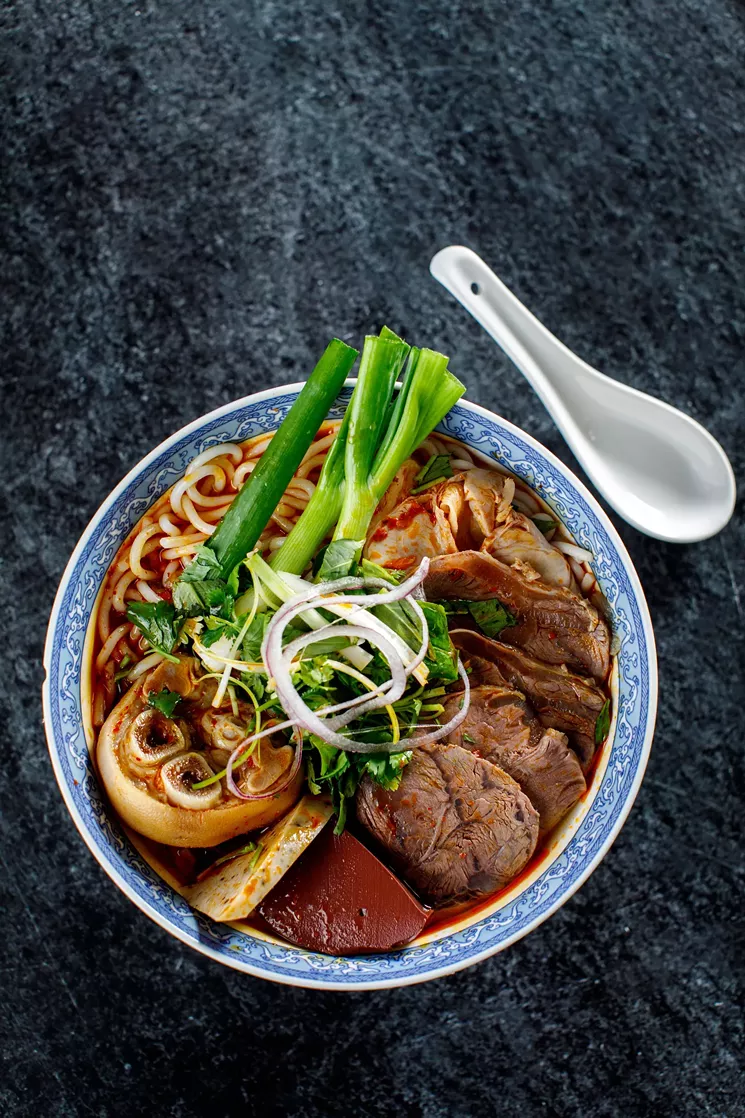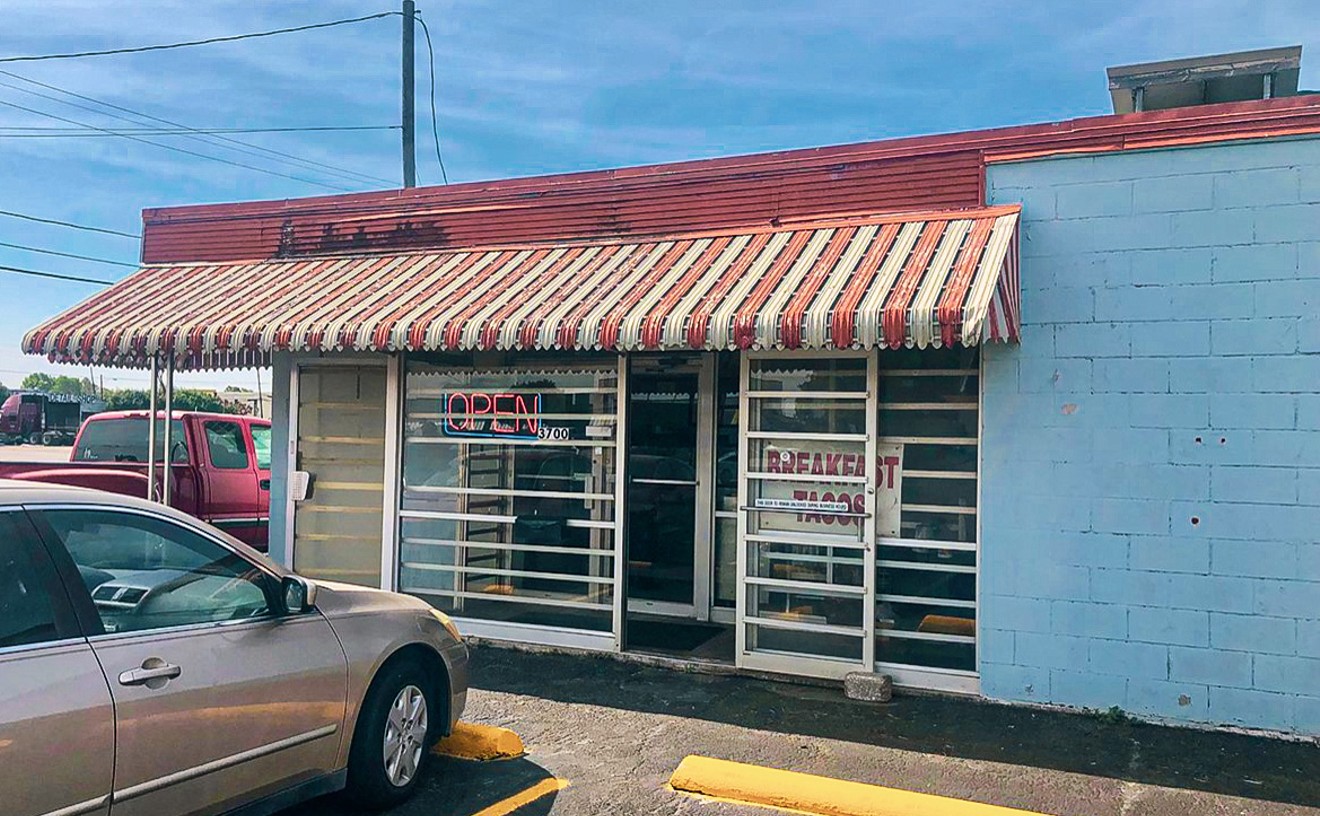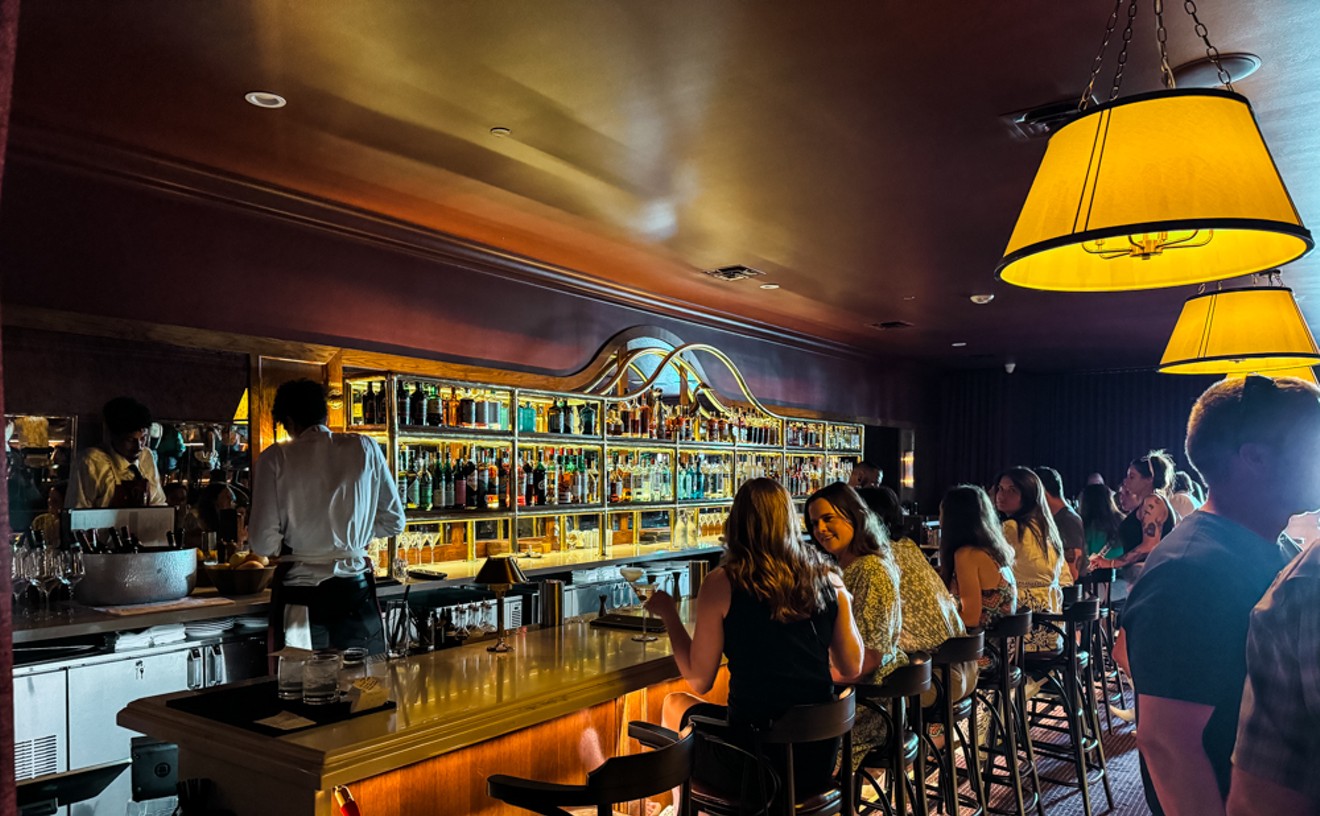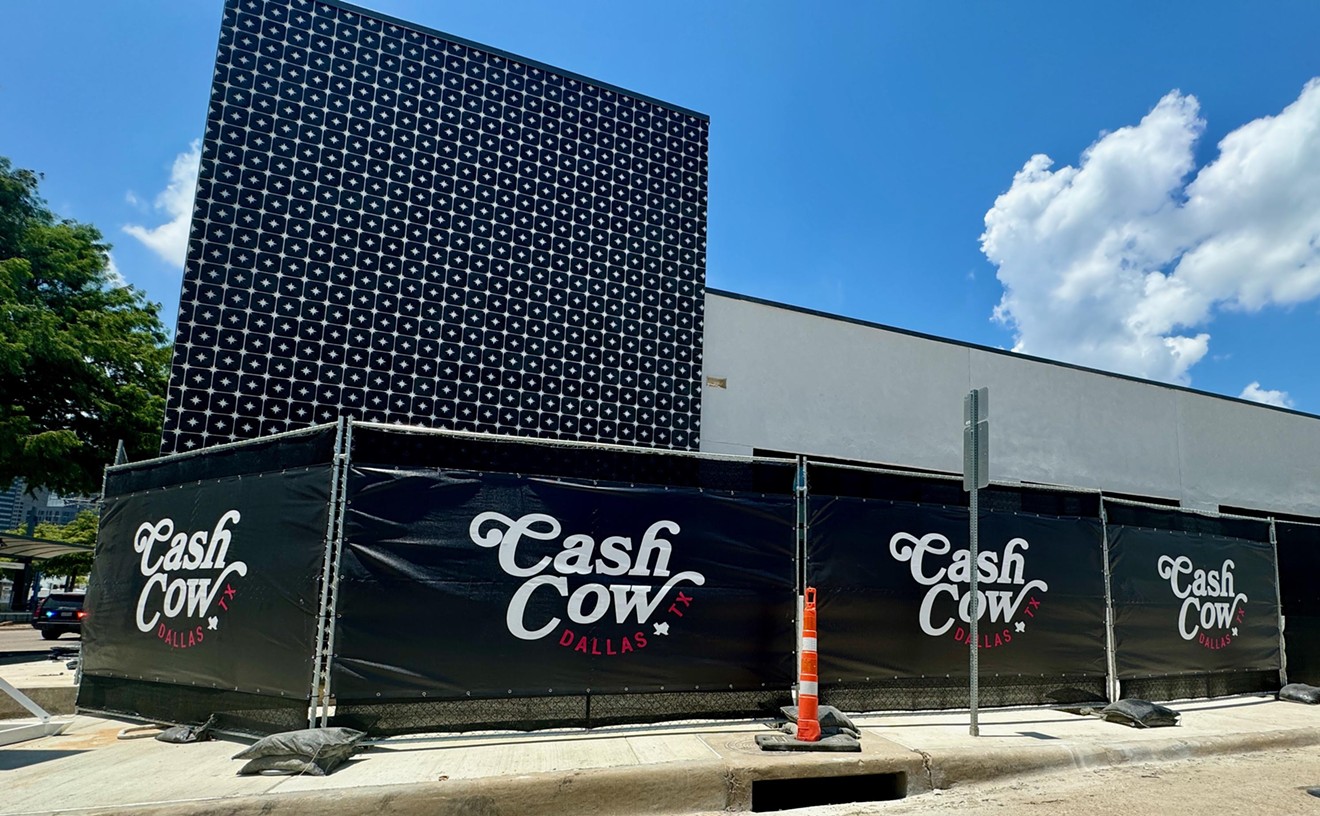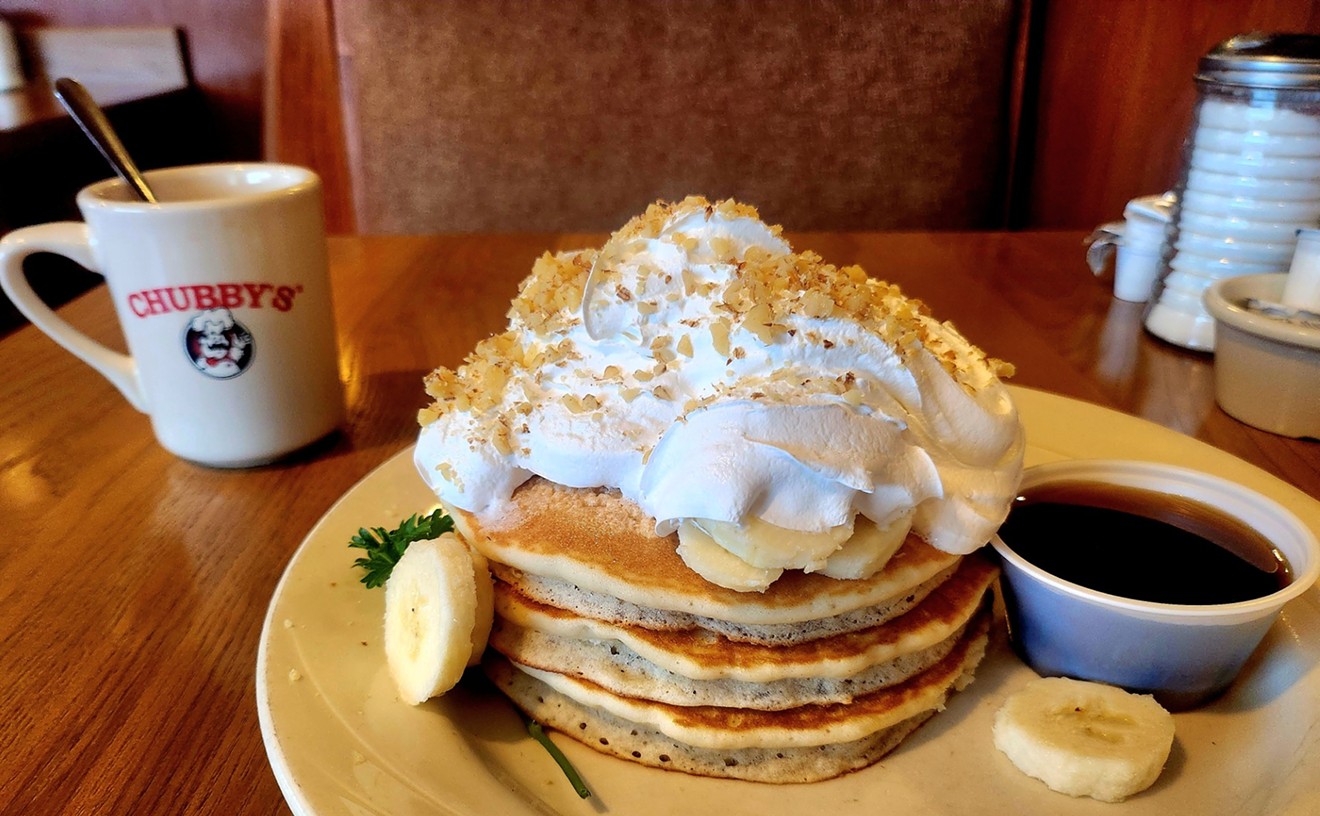That's why creating and subsequently maintaining a successful establishment with a devoted and loyal group of customers is so special and so rare. But even the most successful owners eventually retire or move onto a different concept, and choosing a successor becomes another whole job in itself. For the previous owners of Pho Tay Do in Richardson, passing the baton was about more than knowing the recipes. For Kelly Pham and her brother Tom, it became about much more.
Pho Tay Do is oddly not best known for their pho, but instead for another soup, a less commonly found central Vietnamese dish called bun bo Hue. The dish is similar in many ways to pho, with the final dish being a rich broth enveloping rice vermicelli noodles (bun), accompanied by various cuts of meat and fresh veggies. How Bun bo Hue differs primarily in its use of larger, fatter noodles and it’s deep red broth, dotted with little pools of chili oil indicating its relentless spiciness.
“There were rumors that with the new owner the food might not be good. But we tell everyone, after you eat with us, let us know.” — Kelly Pham, Pho Tay Do
tweet this
Many of Pho Tay Do’s customers don’t even require cracking open a menu, as the bun bo Hue usurps everything else. Bun bo Hue is a dish that is difficult to cut corners with, and with many customers of Pho Tay Do being first-generation immigrants from Vietnam, the quality is held to high scrutiny.
It is this high level of quality that allowed Pho Tay Do to not only survive but to thrive within the community. So when the previous owners stated they would soon be retiring from their restaurant after almost 17 years of continuous operation, word traveled fast about if anyone could be up to the seemingly monumental task.
Kelly Pham is one of eight children in her family. Her mother and father had a business of making homemade tofu and soy milk that they started from scratch. They operated out of a small location from about 2000, and many members of the community would purchase from them, including the (then) husband and wife owners of Pho Tay Do, who were looking to pass on their restaurant to someone who knew what they were doing.
“It was their baby. They were there every day,” Kelly Pham says. “At first she thought that we were too young, that we didn’t care.”
After some convincing, Kelly Pham and her brother Tom Pham took the reins to Pho Tay Do under the condition that they would care after it like it was their child. Kelly and Tom opened the doors to Pho Tay Do with a smooth transition from owner to owner nine months ago. There was still one problem though, while the restaurant had a strong following within the community, there were both regulars who were weary about the new ownership and newcomers who needed their introduction into the world of bun bo.
“There were rumors that with the new owner the food might not be good,” Kelly says. “But we tell everyone, after you eat with us, let us know.”
The bun bo Hue at Pho Tay Do is about as close as what would arrive to your table were you sitting in the hills of the city of Hue in central Vietnam. Kelly and her Tom specifically took a trip to Vietnam prior to taking reins of the restaurant in order to fine tune their taste buds to the flavor.
The soup base starts with the usual beef bones and spices, taking more than 12 hours to simmer and enrich the broth. The kitchen starts the process of cooking the noodles at 8 a.m. and doesn't stop until 9 p.m.
The roiling broth has the finishing touches added about 30 minutes prior to service — a mixture of chilis, onion and garlic alongside aromatic spices. When an order comes in, it's topped with beef shank, Vietnamese pork sausage and, if you’re brave enough, pork hocks and congealed pig's blood cubes.
Kelly often guides newcomers in who want to try the dish.
“First we ask, can you handle spicy food?” she says. “They almost always say yes, but we still keep out the pork blood and pig feet for the first time. Next time they come in we give them everything. It looks strange but it's tasty, they almost always ask for more.”
While the journey to owning and running a successful restaurant is almost never guaranteed, Kelly is thankful for how far she has come. “It's America,” she says. “If you like something, if you’re passionate about it, you make it. We came here with almost nothing, we cannot believe what we have today, it's a pleasure to be here now and to serve our community.”
While Kelly and Tom dare not modify the menu or its recipes too far, they do have tentative plans to add some items as a test run as well as boost their social media presence for the ensuing generation hungry for bun bo Hue.
COVID-19 hasn’t made this any easier, but both Kelly and her brother are optimistic for what the future holds and say they look forward to continuing dishing out hundreds of bowls of soup to go.
Pho Tay Do,1403 E. Campbell Road, Richardson. 972-680-8088. Currently open for takeout 9 a.m. to 9 p.m. daily.

